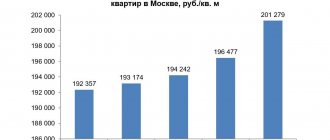After much debate, legislators of the Moscow Government extended the privatization of apartments Even if not for long, people still have time to own their home. However, it is not advisable to delay deadlines.
Most likely, there will be no further extension. Those wishing to carry out privatization need to know where to go, what documents to collect, how to carry out the registration procedure on their own, and in what cases privatization is impossible.
Until what year has the privatization of apartments been extended?
So, you can privatize or obtain free housing ownership until March 1, 2020 . It is worth understanding that this is the last date for submitting documents. Thus, meeting the deadline means submitting documents before February 28, 2020 .
2 months at its discretion , after which, if a positive decision is made, it will be possible to contact the Registration Center to register ownership of the apartment.
It is necessary to have time to formalize and carry out the privatization procedure before this time.
Why is privatization needed?
Privatization gives the right to free housing in the ownership of the owner with the possibility of subsequent sale, transfer as a gift or inheritance, even collateral with a bank for the purpose of obtaining a loan or credit. Nevertheless, the owner of the apartment during the privatization procedure is obliged to comply with all the rules in accordance with the law .
Next, after receiving ownership of your home,
pay taxes, utilities, and apartment renovation costs on a timely basis, i.e., take care of your property as if it were your own, without counting on help (other subsidies) from the state.
Privatization is a long process. Most likely, you will have to wait several months for your turn, so don’t delay the process, quickly start collecting documents, submitting an application, and going through the step-by-step procedure, taking into account all the recommendations provided below.
Moreover, the timing of privatization is limited . There is very little time left for those wishing to purchase an apartment.
Will privatization be extended in 2020?
Privatization is the transfer of real estate - apartments, land plots, industrial facilities and others - from the state fund to private ownership. Almost any object can be privatized, if the state allows. The peak of privatization in Russia occurred in the middle and end of the 1920s, when even light and heavy industry facilities, plants and factories passed under private management from the hands of the state. This process was stopped a few years later, but the opportunity to privatize an apartment or house, especially the one in which the person lived, still remained.
Dear readers! Our articles talk about typical ways to resolve legal issues, but each case is unique.
If you want to find out how to solve your particular problem, please use the online consultant form on the right or call the numbers provided on the website. It's fast and free!
WATCH THE VIDEO ON THE TOPIC: The period for free privatization of housing will be extended for orphans. 01/20/2017
Will the dacha amnesty be extended after 2020?
Citizens of Russia who have not yet managed to formalize ownership of housing are concerned about whether the free privatization of residential properties will be extended. No need to worry! The free transfer of housing into the ownership of tenants will not end on March 1 of the year. The fact is that collecting the documents necessary to re-register property takes a lot of time.
Not all people who want to privatize apartments are able to quickly obtain all the necessary certificates, so the time remaining until spring may not be enough for them. Dear readers! The article talks about typical ways to resolve legal issues, but each case is individual. If you want to find out how to solve your particular problem, contact a consultant:. Extending privatization for another year will allow even the disadvantaged: the poor, the needy, people living in dilapidated buildings to re-register their living space.
The privatization of housing in the Russian Federation has been ongoing since July of this year, but many citizens still do not understand why it is needed. This process involves the transfer of ownership of public housing to the citizens directly living in it. At the same time, owners receive the right to dispose of their property in full. The law determines that free privatization of housing per year applies to any residential properties, with the exception of those belonging to the municipal or state housing stock.
Objects that cannot be privatized include the following types of real estate:. Many Russian citizens living in dilapidated houses are waiting for new housing from the state. If they receive it after the end of free privatization, they will not have time to register ownership of their new apartments. Therefore, the question of whether privatization will be extended remains relevant. The final deadline for the gratuitous transfer of residential properties has already been extended 4 times.
At first, the basic law on privatization indicated its end in the year, then the deadlines crawled to the beginning of the year, then to a year. As a result, privatization ended in the spring of the year. And here is a new government decision to extend free privatization until March 1 of this year. What explains such loyalty of the deputy corps? By giving only a year for privatization, the government’s goal is to encourage everyone who has not yet registered housing ownership to do it faster, and the desire of the country’s leadership is quite understandable, because it is not profitable for the state to have housing stock on its balance sheet.
The full right to apply for the privatization of a residential property is reserved exclusively by legislative acts to the tenant and members of his family, with a few exceptions. The circle of relatives of the tenant for the privatization act is limited; according to Article 69 of the Housing Code of the Russian Federation, it includes the following persons living together with the tenant:. Privatization of a room in a hostel is possible if it is established in court that a citizen has lived in the room for up to a year.
You can find out where to start privatizing a dacha below. Of great importance is the cohabitation of all these persons with the employer. According to this article of the Housing Code of the Russian Federation, even spouses do not receive the right to participate in privatization if they live separately from the responsible tenant. All members of the employer's family who refuse to participate in privatization are required to personally or by a notarized document report the refusal to the relevant organization.
There is a misconception that minors should not take part in the re-registration of property. But in fact, the state has established a minimum share of living space for each child in which to live. If, during the process of privatization of the living space, the child registered on it did not receive ownership of a share of the space, the privatization agreement can be terminated. To do this, you need to submit an application to the court, the guardianship department, the prosecutor's office, and the like.
Another important point is that you can only participate in housing privatization once. The exception is for persons who have not reached the age of eighteen at the time of re-registration of property. When identifying persons who have the right to privatize an apartment, it is important to take into account people registered in a given living space, but who have been absent from their place of registration for a long time.
Regardless of the duration and reason for the long absence, they are given full rights to free privatization. To exercise this opportunity, they must provide the competent authorities with certified documents explaining the reason for their absence.
There is also a big problem that is not commonly talked about. Owners of dilapidated housing scheduled for demolition cannot hope to receive comfortable living space.
In general, when resettling residents of a building in disrepair, the owners are entitled to housing of equal size, but only if the municipality has the ability to provide it.
If local authorities do not have suitable residential properties at their disposal, owners who lose their living space are paid the redemption price. And it practically does not cover the expenses of the homeowner. Despite the repeated extension of the free privatization of residential properties in the Russian Federation, this process cannot be endless. In the end, the moment will come to receive the property only after paying its cost. Will privatization be extended, how much will it cost?
Where to go to privatize an apartment?
Those wishing to participate in privatization should:
- contact the EIRC (information settlement center) at your place of residence;
- pay a state fee of 100 rubles ;
- provide a passport;
- write an application for privatization indicating all residents registered in the apartment - participants in the privatization (including minors);
- present their passports, birth certificates;
- then contact the Department of Housing Policy, the housing stock at your place of residence, or the MFC, which today offers public services. registration of a housing privatization agreement with subsequent acquisition of ownership;
- notarized permission for privatization from all other family members.
What kind of housing cannot be privatized
Not every living space can be privatized in our country. The state has established a number of restrictions on the privatization of housing. Thus, it is impossible to register living space as property if it:
- located in the housing stock of closed military cities;
- was provided to an official in accordance with his official position;
- located in a dilapidated building subject to demolition;
- is an apartment-museum;
- located in environmental or protected areas;
- is an integral part of the hostel (for rooms).
For the last point it is possible to make an exception. The law establishes that the final decision on the possibility of transferring residential premises located in departmental or factory dormitories is made directly by such departments and enterprises themselves.
Documents required for privatization of an apartment
To carry out the registration procedure and register ownership of an apartment, you will need to provide the following to the multifunctional center at your place of registration:
- a handwritten statement;
- technical passport (if necessary, can be ordered from BTI);
- extracts from the personal account indicating that there is no debt for utilities;
- applicant's passport;
- extracts from the house book;
- certificate from the applicant stating that privatization is being carried out for the first time;
- certificates from Rosreestr;
- social rent agreement for housing (if necessary, apply to the cadastral chamber to obtain one);
- permission from the guardianship department if minor children will participate in privatization;
- an extract from the house register about the children’s previous place of residence;
- written permission to carry out privatization from all minor children.
What year did privatization begin in Russia?
The state privatization of apartments by citizens is beneficial, first of all, by excluding the cost of maintaining the common property of apartment buildings and paying for major repairs.
This advantage for the state is also a disadvantage for citizens, since these costs fall on them.
In addition, by privatizing an apartment, a citizen begins to pay the state a real estate tax, which grows every year.
Important: some services may request other additional documents not listed in this article. To speed up the process, we advise you to immediately make several copies of all documents, since each authority, as a rule, takes one copy for itself.
From what date did the privatization of housing in Russia begin?
The law on the so-called denationalization was adopted by the Duma and the government in 1992 and made it possible to carry out actions to conclude transactions for the legal transfer of federal housing property into the private property of the owner. In modern conditions, this transition is not difficult and does not take much time (about a week).
Before starting work on this issue, it is advisable to attend a consultation with a lawyer or realtor, where you will be given a detailed explanation of the procedure for all actions and transformations. However, privatization is also a successful field of activity for illegal trafficking.
In my practice, I also encountered such a case, and its outcome was not the most rosy.
Privatization itself is free, but you will have to pay a state fee for paperwork - 2 thousand rubles. According to the law, the general period for state registration of rights is 10 working days. The owner of the home receives the right to sell it, donate it or bequeath it.
Deadlines for free privatization of apartments and housing in Russia: until what year has it been extended and what will happen next
This is already the fifth postponement of the expiration date of the law on free privatization, however, during its validity, not all willing citizens were able to exercise their right, and in most cases this happened for objective reasons. Let us remind you in what year the privatization of apartments and housing in Russia began; this is already distant 1991.
The right to participate in privatization is re-given only to those who originally participated in it as minors. Upon reaching 18 years of age, these persons can undergo the procedure of transferring ownership of residential premises received by them from the state.
Privatization is an excellent opportunity to purchase municipal or public housing completely free of charge.
To do this, you must live in a residential apartment belonging to a municipal or state housing stock, on social rental terms.
In the future, when the period for privatization of housing expires, the state will provide apartments only under social tenancy agreements, or it will be possible to privatize housing at market value.
Considering the long period of preparation and registration of the privatization procedure, you should not wait “until the last,” that is, until the last days, when free privatization of housing ends .
It is better, if privatization of an apartment is part of your plans, to deal with this issue in advance. But for some reason it turns out that it is precisely at the time when the period for privatization of housing is coming to an end that the most active applications with documents begin to arrive.
For example, according to Rosreestr, in 2011, 304 thousand apartments were privatized in Russia, and during 9 months of 2012, when the privatization process was nearing the end and nothing was known about the extension of the deadline, residents of 610 thousand apartments registered for privatization.
In Moscow alone, the number of applications submitted in 2012 was 162 thousand, compared to 99 thousand privatized apartments on average for other years.
In what year did privatization begin?
It is also necessary to obtain the consent of all family members who are registered in this apartment. It is also important to know that privatization of an apartment is possible without problems if it has not undergone illegal redevelopment.
If this occurs, then it is necessary to legitimize it. This procedure can bring you a lot of trouble.
Also, if the apartment is in disrepair, or is located in a building that is subject to demolition, the privatization of such housing is prohibited.
The Russian government estimates the country’s national wealth—the assets of all state-owned enterprises—at 4 trillion rubles. (those with Lenin). Of these, 1.5 trillion rubles. (35% of the wealth) are intended for free distribution to 150 million people of the Russian Federation, 10 thousand rubles for each.
one piece of paper, the design of which was commissioned by Deloitte Touche Tohmatsu.
It can be: sold; exchange for shares of a check investment fund (CHIF) and then receive an annual dividend from it; independently exchange for shares of a company during a check auction.
Privatization process
The privatization process consists of several stages defined by law.
Includes:
- conducting a real estate assessment at the request of the applicant;
- contacting the housing office to obtain a certificate about the composition of all persons registered in the apartment;
- obtaining permission on the need for privatization, for this you need to contact the housing fund at your place of residence;
- drawing up a document on the right to property by the Federal Service of Rosreestr;
- contacting the BTI at the final stage to re-register the apartment as a property;
- obtaining a new certificate with the distribution of shares (if all family members, in particular minors, are listed as the new owners).
New deadlines set for free privatization
The laws changed radically in March 2020. Changes affected land policy, new deadlines were established for free privatization, and some amendments were also made.
Now the privatization of land plots is carried out free of charge and in a simplified form, but the indefinite period for privatization has been canceled, and a clear end date . The deadline, of course, was slightly extended, but still, the Government of the Russian Federation signed its final deadline.
According to the latest changes, privatization of residential real estate is possible until March 1, 2020 , i.e., before February 28 of next year, it is necessary to submit documents for privatization to the citizen. Participants will no longer be able to apply for social housing, free privatization, or other benefits after March 1, 2020
For those who do not have time to privatize their property before the specified deadline for one reason or another, privatization will only be
paid . This is not the first time that the state has met the population halfway, increasing and extending the terms of privatization.








